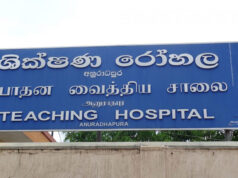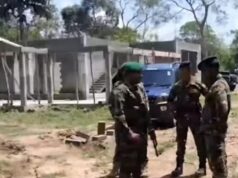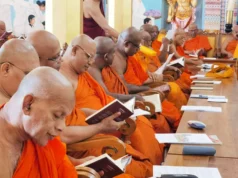Wednesday 26th October, 2022
No sooner had Parliament passed a vital amendment to the Constitution to reduce the powers of the executive presidency in the name of the separation of powers than President Ranil Wickremesinghe made use of a controversial constitutional provision that undermines the justice system, according to legal experts. He granted an amnesty to three LTTE members convicted and jailed for conspiring to assassinate Chandrika Bandaranaike Kumaratunga (CBK) when she was the President. The President’s Office has said CBK was consulted and her approval obtained for the presidential pardon for the aforesaid LTTE cadres.
This, President Wickremesinghe has done while a hunt is on for the leaders of Aragalaya! His government shows no mercy to anti-government protesters, and the police are under political pressure to treat them like convicted criminals. Is it that the government considers the act of holding street protests a far more serious offence than conspiring to kill a President?
President Maithripala Sirisena, given to political grandstanding, if not playing to the gallery, also made a public display of what he made out to be his compassion; in 2016, he pardoned an LTTE cadre imprisoned for having conspired to kill him when he was a minister in the Mahinda Rajapaksa government.
Sri Lankan Presidents have earned notoriety for hypocrisy among other things. They have halted judicial executions and pardon convicted criminals purportedly on humanitarian grounds, but never do they care to prevent extrajudicial killings, and in fact, some of these crimes are committed allegedly at their behest.
President J. R. Jayewardene brought judicial executions to an end, but on his watch the anti-Tamil pogrom was carried out in 1983, and thousands of youth were tortured and murdered for trying to topple his government, in the late 1980s. He also had political dissent brutally suppressed. The same holds true for his successors save one or two. There have been numerous political assassinations and the perpetrators thereof have not been brought to justice.
Sri Lankan Presidents seem to be very considerate towards criminals if their associations with lawbreakers and presidential pardons for convicted anti-social elements are any indication. President Jayewardene set a very bad precedent by pardoning a convicted rapist named Gonawala Sunil. President Mahinda Rajapaksa pardoned a woman convicted of a double murder, and two foreigners serving jail terms for drug-related offences. President Sirisena released a convicted murderer, Jude Jayamaha, who murdered a teenage girl. His successor, Gotabaya Rajapaksa, pardoned a former military officer, Sunil Ratnayake, convicted and sentenced to jail for killing eight Tamil civilians. Not to be outdone, President Wickremesinghe has pardoned three members of the LTTE, which committed heinous crimes against civilians, and carried out countless political assassinations!
It is not out of compassion that our self-righteous Presidents pardon convicted criminals. That they are without any compassion is evident from the fact that they do not forgive their political rivals. Chandrika will not forgive Sirisena, who has refused to step down as the SLFP leader. Sirisena is not compassionate towards President Wickremesinghe. Chandrika and Mahinda are sworn enemies despite their concern about convicted criminals.
Many are those who are protesting against the presidential pardons for Jayamaha and Ratnayake; such convicts do not deserve amnesty. It will be interesting to see their reaction to the release of convicted terrorists.
The need to restrict the President’s power to pardon prisoners cannot be overstated. The practice of the Executive using the flawed Constitution as a key to open jails for convicted criminals to walk free has to be discontinued forthwith.
Let a constitutional amendment be brought in to prevent the Executive from making a mockery of the justice system.







